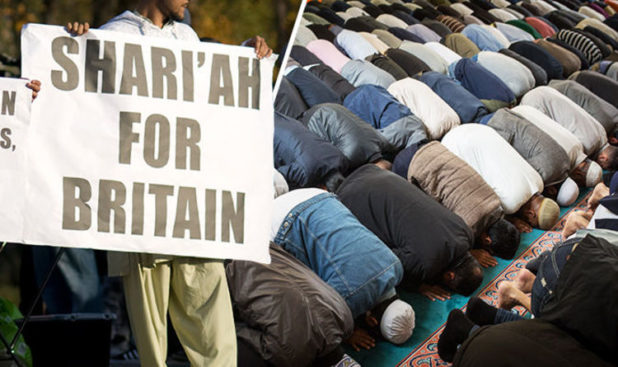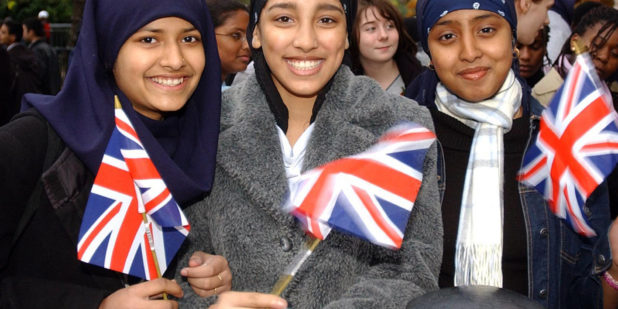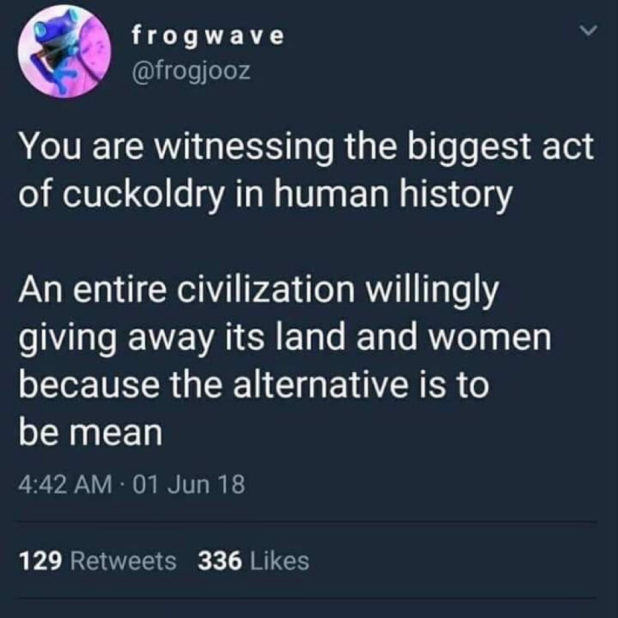Pomidor Quixote
Daily Stormer
January 4, 2020
Soon?
Three million MOSLEMS are a lot of MOSLEMS.
The United Kingdom should increase censorship to prevent any of those MOSLEMS from hearing mean things about Islam, because you know what happens when they hear mean things about Islam.
The Muslim population of England has passed the three million mark for the first time, according to estimates prepared by Whitehall.
They said that Muslims are the fastest-growing faith group in the country – while allegiance to Christianity continues to decline.
The figures were produced by the Office for National Statistics as part of a research project to try for the first time to make regular assessments of the size of different ethnic and religious groups.
Until now religious and ethnic minority populations could be gauged only once a decade using the results of the full-scale ten-yearly national census.
According to the ONS assessment, Christians continue to decline in number, but the drop in allegiance to Christianity may be slowing.
Among other faith groups, the share of Hindus in the population has climbed slightly, while the proportion of Sikhs has fallen by a similar small amount.
The scale of the Jewish and Buddhist shares of the population have remained stable, the report said.
The share of people who say they have no religion at all or who will not discuss their faith has risen to almost a third of the English population, an increase almost certainly a result of the fall-off in Christian belief.
People in the West choose to leave the primitiveness of religion behind and embrace the enlightened path of Progress, while also importing millions of religious primitives because the alternative would be to be mean.
We don’t do mean here in the West.
The ONS also estimated that the proportion of people in England who say they follow a religion other than a major faith more than trebled between 2011 and 2016.
The increase may again be a result of people searching for new beliefs after becoming disillusioned with Christianity.
The new figures suggest that in 2016 – five years after the 2011 national census – there were 3,138,000 Muslims in England and Wales, up by more than 400,000 from 2.7 million over the five years. This was an increase of roughly 16 per cent.
In England alone, the ONS estimates said, there were 3,092,000 Muslims in 2016.
As a share of the population of England, the assessment indicated that the Muslim faith group made up 5.6 per cent in 2016 against 4.7 per cent in 2011.
The research report said: ‘There is a decline for the Christian group, though it remains the largest group in England.
‘The lower proportion of the population in the Christian group is counteracted by higher proportions of all the other groups, with the largest increases seen for the Muslim, none or not stated, and other faith groups.’
It added that statisticians cannot yet pinpoint the reasons for the growth in the Muslim population and the decline of Christianity.
‘With a breakdown by any other characteristics, for example by age or sex, we cannot draw any conclusions about what causes these differences,’ the report said.
Truly a mystery.
Neither birthrates, immigration, nor media talking points brainwashing the public can really begin to explain this enigmatic situation.
While the ONS said the new estimates could not be used to assess local populations, the 2011 census report said that ‘Muslims tended to be concentrated in particular areas of England.
‘In over half of local authorities the proportion of the population who were Muslim was under one per cent. In over three-quarters of areas it was under six per cent.
‘The areas with the highest proportion of Muslims were in London with the boroughs of Tower Hamlets and Newham having 34.5 per cent and 32.0 per cent respectively.
‘There were several areas outside London with proportions higher than 20 per cent including Blackburn with Darwen in the North West (27.0 per cent ), Bradford in Yorkshire and the Humber, Luton in East of England, Slough in South East, and Birmingham in the West Midlands.’
Slowly but surely taking over, one area at a time.




